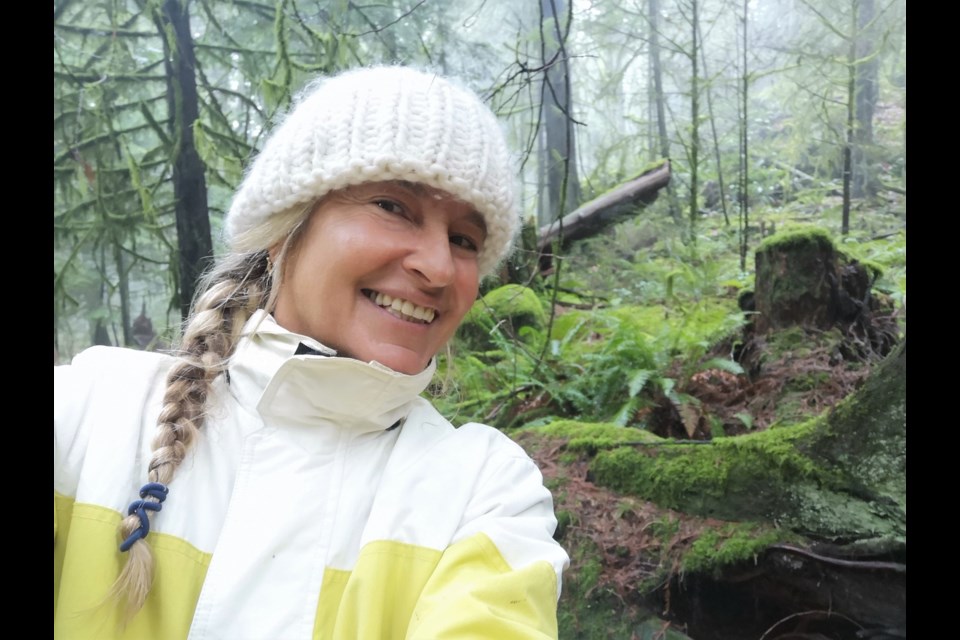The worldwide pandemic has put a pause on our daily activities, but, according to one Richmond artist, COVID-19 has also given the environment a break from humans.
Like everyone, Richmond resident Maria Coletsis was fearful of the pandemic when businesses began closing and restrictions were put in place.
However, as an artist she found solace and inspiration when she started riding her bike around her neighbourhood at the beginning of last year.
“I wanted to go outside and ride my bike and breathe some fresh air, and that was when I started noticing that the pandemic was like a positive consequence, not for me, but for the environment,” said Coletsis, adding that she saw the “environment thriving” with clear skies and fewer vehicles on the roads.
“Our consumer lifestyle has affected nature, and I want to portray this to the public.”
She told the Richmond News that it felt like the natural world was taking a “sigh of relief.” Reports were coming in that the mountains around Dheli, usually shroud in pollution, could be seen and dolphins appeared in the Venice canals.
“It dawned on me that the mask may actually be for the environment, and I had to portray it in a way that many people could relate to and talk about.”
Coletsis’ project, Intermission, uses the image of a face mask to illustrate how human consumerism and “continual intrusion” have affected the world’s nature.
The project is a series of 10 digital images portraying different pollution-causing factors, including radiation, mining, factories and more.
When asked why she decided to “put a mask” on nature, Coletsis said because while we require masks to protect ourselves from the coronavirus, so too nature requires a mask to protect it from humans.
“I visualized putting a mask on nature and that would be a great way to communicate to each other as humans,” said Coletsis.
“When the pandemic started, I saw people were using the parks more than they had before because of the lack of get-togethers and I want them to think of how we can all work together with the environment … to find a balance in this lockdown and social distancing world.”
Her photos are being exhibited in Budapest and California, as well as in Rome in the upcoming month.
“I hope everyone can stop and consider that our current consumer lifestyles affect and impact our environment.”
Coletsis’ collection can be viewed online on her .
